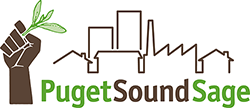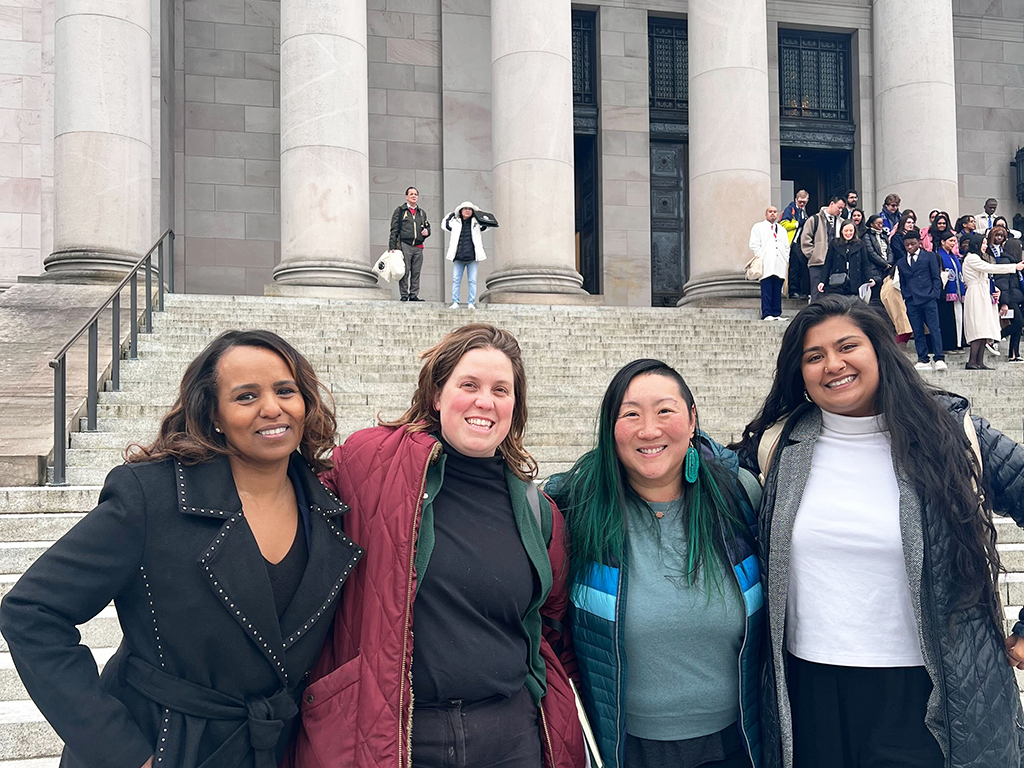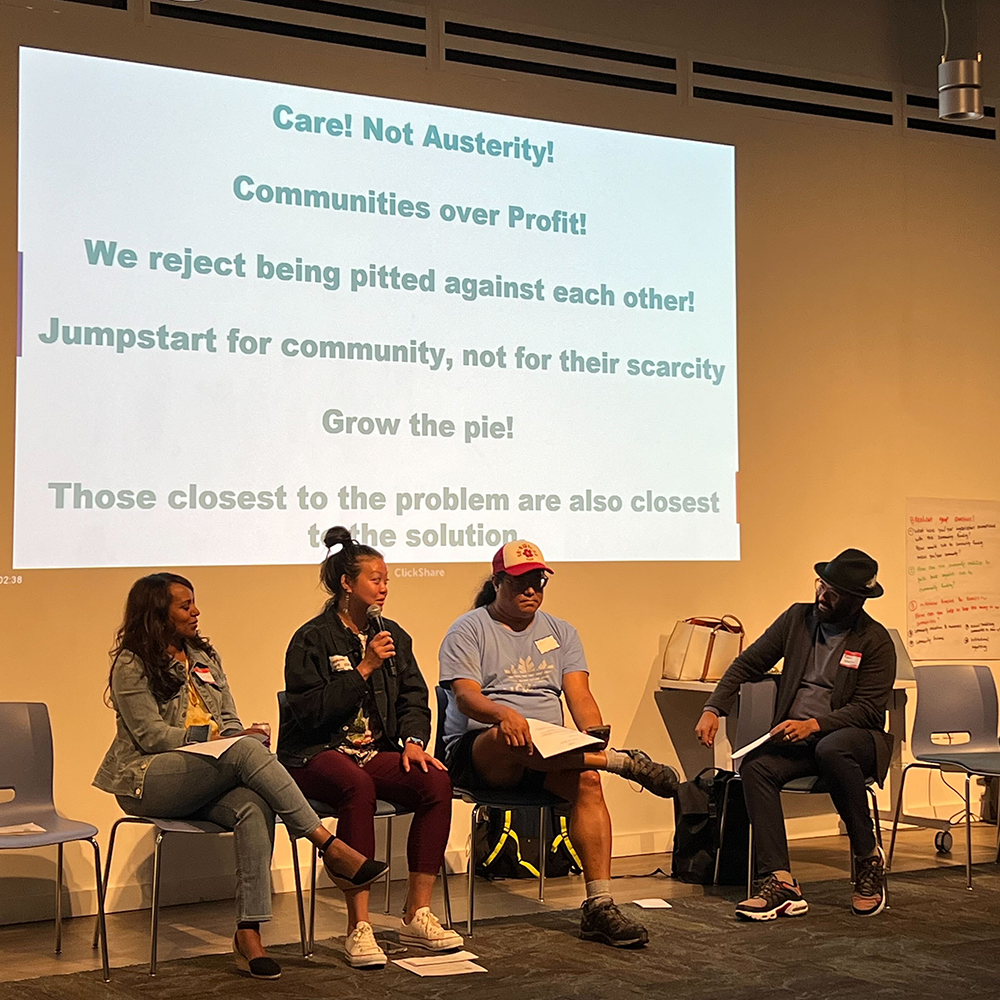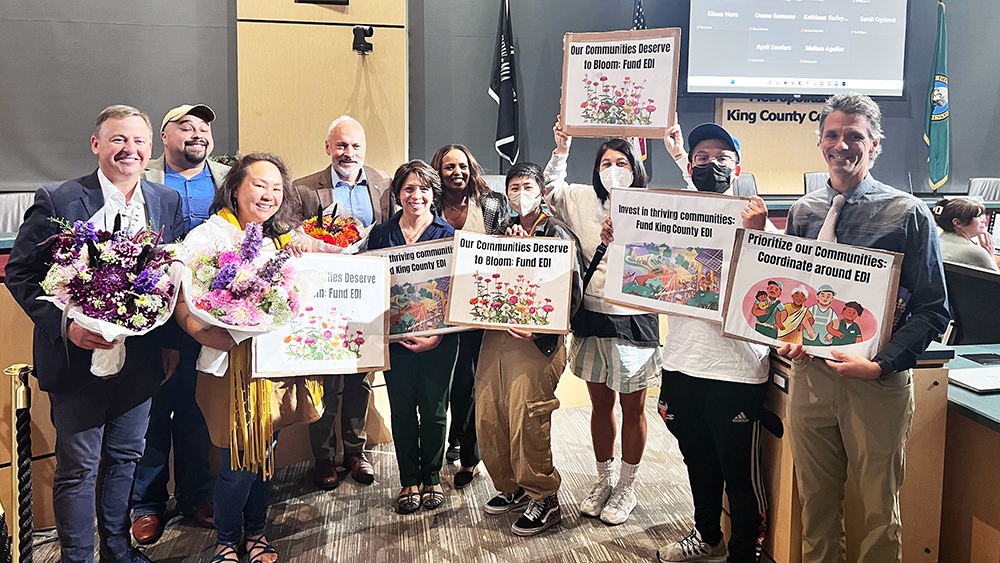“Hello! My name is Claudia Alexandra Paras. I’m a mixed-race Filipina American immigrant with citizenship privilege. I moved to the U.S. in 1998 with scholarships to attend the University of Redlands in Southern California. After graduating, I moved to Seattle (on a whim to be near water again) and started planting my PNW roots through cultivating deep friendships, learning how to organize in our communities and centering social justice in my work.”
“I worked at Sage from 2012 to 2016, starting as a coalition organizer who supported the workers organizing at SeaTac Airport. I helped create and build the Interfaith Economic Justice Coalition (IEJC) that stood with airport workers in their fights for a living wage, which became the landmark $15 SeaTac ballot initiative in 2013 which had rippling effect on minimum wage fights around the country. I’m very proud of the role Sage played in that campaign and my contribution to organizing a dedicated coalition of interfaith leaders to stand with workers through all their challenges. After this campaign win, my role at Sage changed to Lead Organizer and then later on to Deputy Director.”
“I have over 20 years of experience in immigrant adult education, grass-roots community organizing, campaign and coalition organizing, fundraising, managing government contracts and strategic planning. For the past three years, I’ve been a consultant with a focus on supporting non-profit organizations, unions and government departments to create strategic plans, fundraise and develop leadership. I love what I do – it gives me the chance to work with a lot of people of color leaders and their staff who are value centered, super-skilled and care deeply for working people and their families.”
“Last year, I facilitated the creation of Sage’s new Strategic Plan for 2025-2030, which has felt like completing a large orbit in my professional life, returning to an organization I have always loved and seeing what has changed and grown in my absence. I’m grateful to be part of implementing Sage’s long-term vision in my role as Interim Executive Director for the next 4 months, especially as we continue to navigate the challenges of our current political climate.”
Favorite memory of working at Sage? “Organizing the IEJC contingent for May 1st Rally in 2014 to defend the SeaTac Ballot Initiative. My Mom (also an immigrant) came to that rally and it was a sweet moment for the political and personal.”
Favorite food in the CID? “Szechuan Noodle Bowl – the dumplings!!”
Favorite Movement Quote? “We need dreamers who act, not actors who dream” by Lorena Barros









